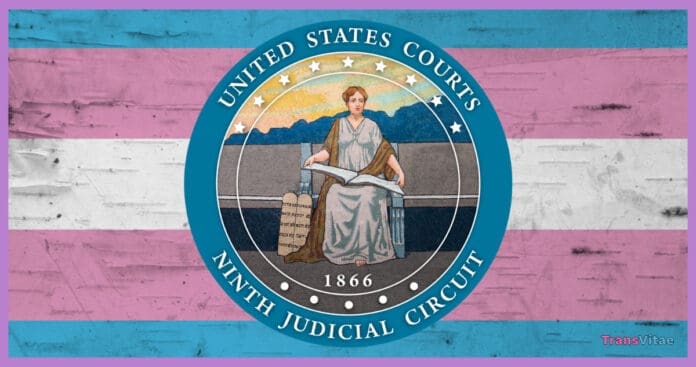On Friday, the U.S. Court of Appeals for the 9th Circuit unanimously dismissed a constitutional challenge to three Washington state laws that safeguard minors, including transgender youth, from abuse or neglect when informing their parents could jeopardize their access to shelter, mental health services, and gender-affirming or reproductive care. Due to their inability to demonstrate a specific, non-speculative injury, the court ruled that the plaintiffs, two national anti-trans organizations and multiple parents, lacked legal standing. The laws are upheld by the ruling.
Judge Milan Smith, who wrote for the panel, clarified that the parents’ concerns that their child might “some day” run away and use the statute were too speculative to allow the courthouse to be opened. Additionally, the court found no evidence of a parental rights, free speech, or free exercise injury in the record that was presented.
The decision, which upholds a lower court’s dismissal, was applauded by the office of Washington Attorney General Nick Brown. Although there is still time to appeal International Partners for Ethical Care, Inc. v. Ferguson, No. 24-3661, Washington’s framework is in effect for the time being.
Why this matters
- For now, the laws remain in effect. The 9th Circuit did not approve or disapprove gender-affirming care on the basis of merits since it made its decision based on standing. Practically speaking, trans teens in Washington maintain the legal buffer that permits shelters and providers to put their safety first in situations where parental notification might be detrimental.
- Standing is turning into a gatekeeper. Conservative legal organizations have been using expansive parental rights theories to try and undermine protections for youth care. The message from the 9th Circuit is that actual, immediate harm, rather than hypothetical culture wars, is needed. Expect more blue states to utilize this ruling to back similar legislation.
- The legal landscape is becoming more divided. Tennessee’s ban on gender-affirming care for minors was upheld by the U.S. Supreme Court just weeks ago, indicating that states that restrict care are currently protected by the country’s highest court. Washington, meanwhile, recently used a standing ruling to defend access. Your actual rights are still largely determined by where you live.
- The battles between youth safety and parental rights are not going away. Other courts are considering related issues, such as curriculum opt-outs and school notification policies, and occasionally they are supporting parents who want more authority. The 9th Circuit’s decision on Friday highlights that widespread parental objections will not always prevail over youth safety laws, particularly in the absence of evidence of harm, but it does not end that national tug-of-war.
For young transgender people and those who support them
This decision means that trans teens in Washington still have the legal protections that allow them to get help without being exposed to dangerous situations. The court stated that the challengers had not demonstrated that they were genuinely being harmed, but it did not cast doubt on your authority or your concern. In a year full of negative headlines, that is a subtle but significant form of validation.
What to watch next
- Potential Supreme Court en banc bids. The plaintiffs may request a review of the case from the Supreme Court or the entire 9th Circuit. Even a future challenge may require new plaintiffs with specific injuries in order to receive a merits ruling because the panel relied on standing.
- Copy-paste laws and court cases. Anticipate that both red and blue states will continue to push the boundaries: blue states will increase youth care, while red states will restrict it. Courts will continue to determine who is harmed and how quickly.
For the time being, Washington’s message is clear: transgender youth can still seek assistance before the courts debate hypotheticals when safety is at risk.


